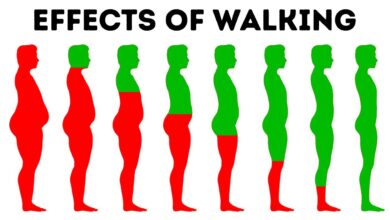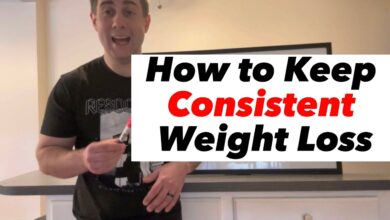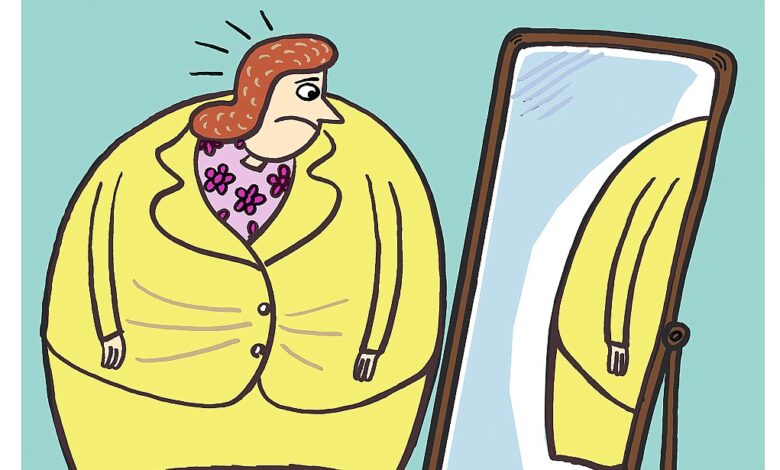
How Anxiety Sabotages Weight Loss
How anxiety sabotages weight loss is a topic that often gets overlooked, but it’s crucial to understand how our mental state can impact our physical well-being. Imagine this: you’re determined to shed those extra pounds, you’re eating healthy, exercising regularly, but the scale just won’t budge.
Frustration sets in, and you find yourself reaching for that comfort food, only to feel guilty and defeated later. This is a common scenario for many, and it’s often anxiety that’s pulling the strings behind the scenes.
Anxiety can manifest in various ways, from emotional eating and disrupted sleep to increased cortisol levels and hormonal imbalances. All of these factors can disrupt your body’s natural weight management system, making it harder to achieve your weight loss goals.
But don’t despair! Understanding the connection between anxiety and weight loss is the first step to taking control of your health and achieving lasting results.
The Psychological Impact of Anxiety on Weight Loss
Anxiety can significantly impact weight loss efforts, often working against your goals in ways you might not even realize. It’s not just about the stress; anxiety triggers a complex interplay of emotions, behaviors, and physiological changes that can make weight management a challenging uphill battle.
Anxiety can really mess with your weight loss journey. It often leads to emotional eating, which can sabotage your progress. But there’s a twist: sometimes, why eating more might be the secret for weight loss ! It’s all about finding the right balance and ensuring your meals are nourishing and fulfilling, not just about restriction.
When you’re constantly anxious, your body might be craving more food to feel secure, so learning to manage your anxiety is crucial for sustainable weight loss.
Emotional Eating and Overeating
Anxiety can lead to emotional eating, a coping mechanism where people turn to food for comfort and solace in times of stress. When faced with anxiety, the brain releases stress hormones like cortisol, which can trigger cravings for high-calorie, sugary, or fatty foods.
These foods provide a temporary sense of pleasure and relaxation, offering a quick fix for the uncomfortable feelings of anxiety. However, this cycle of emotional eating can lead to overeating and weight gain.
Physical Manifestations of Anxiety and Weight Loss: How Anxiety Sabotages Weight Loss
Anxiety can have a significant impact on your physical health, and this impact extends to your weight. When you’re anxious, your body goes into “fight or flight” mode, releasing hormones like cortisol that can disrupt your metabolism and lead to weight gain.
Increased Cortisol Levels and Fat Storage
Cortisol, often referred to as the “stress hormone,” plays a crucial role in regulating your body’s response to stress. When you experience anxiety, your body releases higher levels of cortisol, which can lead to several physical changes. One of the most significant is increased fat storage, particularly around the abdomen.
Anxiety can make it tough to stick to a healthy routine, and that includes exercise. When you’re stressed, you might find yourself skipping workouts or choosing less intense activities. But even if you do manage to get your sweat on, anxiety can also make it harder to recover properly.
That’s why it’s important to consider whether you really need to cool down after a workout, as explained in this helpful article: do i really need to cool down after a workout. Taking the time to cool down can help your body recover from exercise, which is crucial for weight loss and overall well-being.
So, even if you’re feeling stressed, try to prioritize those post-workout recovery steps to help your body and mind stay in balance.
High cortisol levels promote the storage of fat in the abdominal region, leading to a “belly fat” accumulation that is often associated with stress and anxiety. This is because cortisol increases insulin resistance, making it harder for your body to utilize glucose for energy.
As a result, your body turns to stored fat for fuel, contributing to weight gain.
Digestive Issues and Nutrient Absorption
Anxiety can also disrupt your digestive system, leading to problems like irritable bowel syndrome (IBS), constipation, and diarrhea. These digestive issues can interfere with nutrient absorption, making it harder for your body to get the nutrients it needs to function properly.
When your body doesn’t absorb nutrients effectively, it can lead to deficiencies in essential vitamins and minerals, which can further contribute to weight gain. For example, a deficiency in vitamin B12, which is essential for metabolism, can slow down your metabolism and make it harder to lose weight.
Anxiety can really throw a wrench in your weight loss journey. When you’re stressed, your body goes into fight-or-flight mode, which can lead to cravings for comfort foods and make it harder to stick to your healthy eating plan.
That’s where a recipe like this simple spaghetti squash lasagna comes in handy. It’s a delicious and satisfying meal that’s packed with nutrients and can help you stay on track even when your anxiety is high.
Hormonal Imbalances and Metabolism
Anxiety can also disrupt your hormonal balance, leading to changes in your metabolism. For example, high levels of cortisol can interfere with the production of thyroid hormone, which plays a vital role in regulating your metabolism. This hormonal imbalance can slow down your metabolism, making it harder for you to burn calories and lose weight.
It can also lead to increased cravings for sugary and fatty foods, further contributing to weight gain.
Comparing Physical Symptoms of Anxiety and Weight Loss Plateaus
It’s important to note that the physical symptoms of anxiety can often mimic those of weight loss plateaus. For example, both anxiety and weight loss plateaus can cause fatigue, sleep disturbances, and mood swings. If you’re experiencing these symptoms, it’s crucial to differentiate between anxiety and a weight loss plateau.
If you suspect that your weight loss plateau is related to anxiety, consider talking to your doctor or a therapist to address the underlying issue.
Strategies to Manage Anxiety for Weight Loss Success
Anxiety and weight loss are often intertwined, with anxiety hindering progress and weight loss exacerbating anxiety. Understanding the interplay between these two is crucial for effective weight management. By implementing strategies to manage anxiety, you can pave the way for a healthier and more sustainable weight loss journey.
Stress Management Techniques
Stress management plays a pivotal role in alleviating anxiety and promoting weight loss. Incorporating stress-reducing techniques into your daily routine can create a more balanced and harmonious state of mind.
- Mindfulness:This practice involves focusing on the present moment without judgment. Engaging in mindful activities like meditation, yoga, or simply paying attention to your breath can help reduce stress and promote a sense of calm.
- Meditation:Regular meditation has been shown to reduce stress hormones, improve mood, and enhance emotional regulation. Even a few minutes of daily meditation can have a significant impact on your overall well-being.
- Deep Breathing Exercises:Simple deep breathing exercises can effectively lower stress levels by slowing down your heart rate and promoting relaxation. Techniques like diaphragmatic breathing or box breathing can be practiced anywhere, anytime.
- Progressive Muscle Relaxation:This technique involves systematically tensing and relaxing different muscle groups throughout your body. By releasing tension, you can reduce physical and mental stress.
- Journaling:Writing down your thoughts and feelings can help you process emotions and gain clarity. It can also serve as a valuable tool for identifying triggers and developing coping mechanisms.
Sample Daily Routine for Stress Reduction
A structured daily routine can help create a sense of stability and control, reducing anxiety and promoting healthy habits.
- Morning:Start your day with a mindful activity, such as meditation or deep breathing exercises. This can help set a calm and focused tone for the day.
- Afternoon:Take a short break during the day to engage in a stress-reducing activity, such as listening to calming music, taking a walk in nature, or reading a book.
- Evening:Wind down before bed with a relaxing routine, such as taking a warm bath, reading, or listening to soothing music.
Anxiety-Reducing Foods and Their Nutritional Benefits
Certain foods can help promote a sense of calm and well-being, reducing anxiety and supporting your weight loss goals.
| Food | Nutritional Benefits |
|---|---|
| Salmon | Rich in omega-3 fatty acids, which have been shown to improve mood and reduce inflammation. |
| Dark Chocolate | Contains flavonoids, which act as antioxidants and may have mood-boosting effects. |
| Almonds | A good source of magnesium, a mineral that plays a role in reducing stress and anxiety. |
| Turmeric | Contains curcumin, a potent anti-inflammatory compound that can help alleviate anxiety symptoms. |
| Green Tea | Rich in L-theanine, an amino acid that promotes relaxation and reduces stress. |
Physical Activity for Anxiety Relief and Metabolism Boost
Physical activity is a powerful tool for managing anxiety and boosting your metabolism, supporting weight loss.
- Aerobic Exercise:Activities like running, swimming, or cycling release endorphins, which have mood-boosting effects.
- Strength Training:Resistance training can help reduce stress hormones and improve body composition, contributing to weight loss.
- Yoga:Combining physical postures with deep breathing, yoga can promote relaxation, reduce stress, and improve flexibility.
Seeking Professional Help for Anxiety and Weight Loss
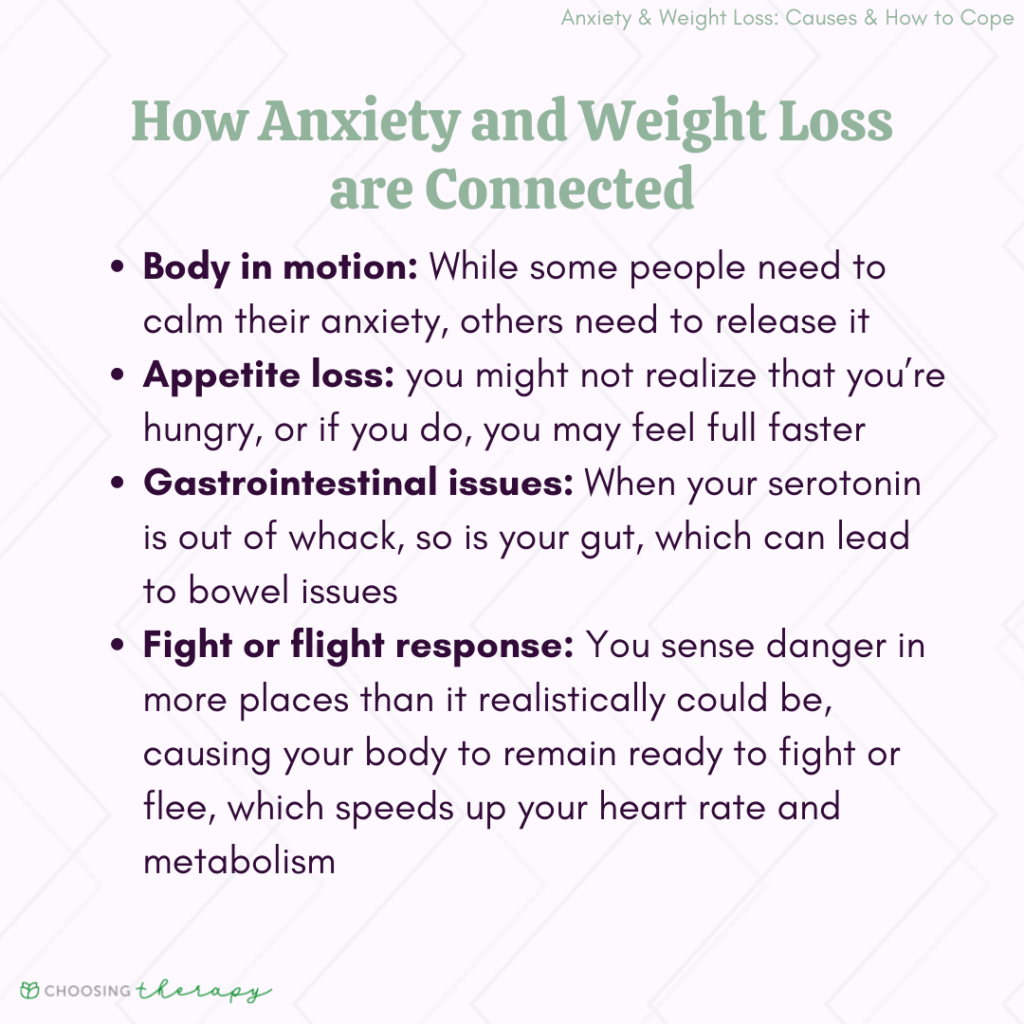
When anxiety persistently hinders your weight loss journey, seeking professional help can be a transformative step towards achieving your goals. A qualified mental health professional can provide the tools and support you need to manage anxiety and its impact on your weight.
Mental Health Professionals Who Can Assist
Mental health professionals play a crucial role in addressing anxiety and its influence on weight loss. Here’s a list of professionals who can offer valuable support:
- Psychologists:Psychologists are trained to diagnose and treat mental health conditions, including anxiety disorders. They can help you understand the root causes of your anxiety, develop coping mechanisms, and implement behavioral changes to manage stress and improve your overall well-being.
- Psychiatrists:Psychiatrists are medical doctors who specialize in mental health. They can assess your anxiety, prescribe medication if necessary, and work collaboratively with you to develop a comprehensive treatment plan.
- Therapists:Therapists, such as licensed clinical social workers (LCSWs) or licensed marriage and family therapists (LMFTs), provide counseling and therapy to address a wide range of mental health issues, including anxiety. They can help you develop strategies for managing stress, improving self-esteem, and building healthy coping mechanisms.
- Registered Dietitians:Registered dietitians are experts in nutrition and can help you create a personalized meal plan that supports both your physical and mental health. They can provide guidance on how to make healthy food choices while managing anxiety and promoting weight loss.
Benefits of Therapy or Counseling
Therapy or counseling offers numerous benefits for individuals struggling with anxiety and its impact on weight loss. These benefits include:
- Identifying and Addressing Underlying Causes:Therapy provides a safe and supportive environment to explore the root causes of your anxiety. By understanding the triggers and patterns associated with your anxiety, you can develop targeted strategies to manage it effectively.
- Developing Coping Mechanisms:Therapists can teach you evidence-based techniques for managing anxiety, such as relaxation exercises, mindfulness practices, and cognitive behavioral therapy (CBT). These tools empower you to regulate your emotions and reduce the impact of anxiety on your daily life and weight loss efforts.
- Improving Self-Esteem and Body Image:Anxiety often leads to negative self-talk and body image issues. Therapy can help you challenge these negative thoughts, develop a more positive self-perception, and cultivate a healthier relationship with your body.
- Building Support and Accountability:A therapist can provide a non-judgmental space for you to discuss your struggles and celebrate your successes. They can also help you identify and build a supportive network of friends, family, or support groups to encourage your weight loss journey.
The Role of Medication
Medication can be a valuable tool in managing anxiety, particularly when it’s severe or significantly impacting your daily life.
Important Note:Medication should always be used in conjunction with therapy or counseling, as it’s not a standalone solution for anxiety.
- Anti-anxiety Medications:These medications, such as benzodiazepines or selective serotonin reuptake inhibitors (SSRIs), can help reduce anxiety symptoms and improve mood. It’s crucial to discuss potential side effects and interactions with your doctor or psychiatrist.
- Potential Weight Effects:Some anti-anxiety medications can have side effects that may impact weight, such as increased appetite or weight gain. Open communication with your doctor is essential to monitor any changes in your weight and adjust your medication or treatment plan as needed.
Finding a Qualified Professional and Building a Supportive Network, How anxiety sabotages weight loss
Finding the right mental health professional is crucial for successful anxiety management and weight loss.
- Seek Recommendations:Ask your primary care physician, friends, or family for recommendations. You can also search online directories of mental health professionals in your area.
- Consider Your Needs:When choosing a professional, consider your preferences for therapy style, expertise in anxiety disorders, and experience in working with weight loss.
- Schedule an Initial Consultation:Most therapists offer a free or low-cost initial consultation to discuss your needs and see if they’re a good fit for you.
- Build a Supportive Network:Connect with friends, family, or support groups who understand your challenges and can provide encouragement and accountability.
Conclusion
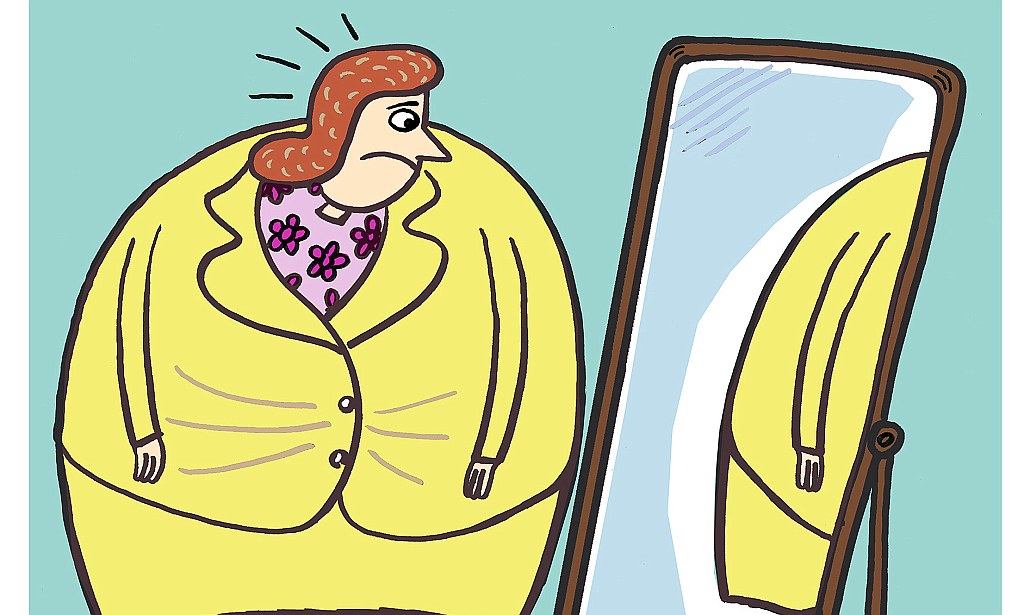
While anxiety can be a formidable opponent in your weight loss journey, it’s not insurmountable. By learning to manage your anxiety through stress-reducing techniques, seeking professional help when needed, and adopting a holistic approach to your health, you can break free from the cycle of anxiety and weight loss sabotage.
Remember, your body and mind are interconnected, and by nurturing both, you can create a foundation for lasting well-being and achieve your weight loss goals.

